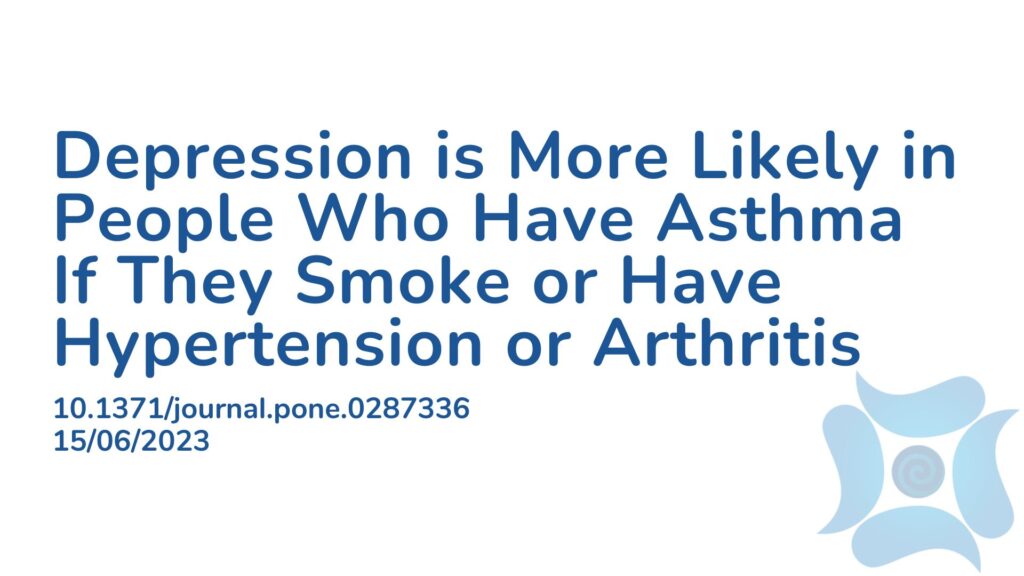Summary:
Asthma is a chronic inflammatory disorder characterized by narrowing airways causing airflow obstruction. Approximately 20 million people in the United States are impacted by asthma and over 300 million people worldwide. People with asthma frequently have comorbidities such as depression, and research has shown that treating the depression can have positive impacts on asthma outcomes. Yet, there is currently no solid evidence that has explored the risk factors for depression people who has asthma which is what the authors of this paper have aimed to do. A total of 5,379 asthmatic patients were included in this study. Of these participants, 4,612 individuals did not have depression and 767 individuals had depression. The risk factors assessed were age, gender, ethnicity, body mass index, education level, smoking status, alcohol consumption and health conditions such as hypertension, diabetes mellitus, coronary heart disease and stroke. The results showed that depression was more likely in people with asthma who smoke, have hypertension and/or arthritis, and is less likely to occur in people with higher education levels and people who are older. These results are important as they could improve the identification of risk factors as well as specific populations who may be at risk, to improve the mental health of people who has asthma.
Abstract:
Background: The risk factors for depression in asthma are still unclear. The objective of this study was to identify the risk factors associated with depression in asthmatic individuals. Methods: We used data from the 2005-2018 National Health and Nutrition Examination Survey (NHANES). Univariate analysis and multivariate logistic regression analyses were used to identify risk factors for depression and calculate unadjusted and adjusted odds ratios (ORs) and 95% confidence intervals (CIs). Results: A total of 5,379 asthmatic participants were included. Of these subjects, 767 individuals had depression, and 4,612 individuals had no depression. Univariate analysis and multivariate analyses suggested that asthmatic individuals with smoking (OR 1.98, 95% CI 1.19-3.29), hypertension (OR 2.73, 95% CI 1.48-5.04), and arthritis (OR 2.83, 95% CI 1.53-5.22) were more likely to have depression. Asthmatic individuals who had more than a high school education had lower depression risk than those with less than a high school education (OR 0.55, 95% CI 0.30-0.99). Increasing age was also associated with decreased depression risk (OR 0.97, 95% CI 0.95-0.99). Conclusions: Depression was more likely in asthmatic individuals with smoking, hypertension, and arthritis and less likely in individuals with higher education and increasing age. These findings could improve the identification of target populations for effective interventions to improve the mental health of asthmatic individuals.
Article Publication Date: 15/06/2023
DOI: 10.1371/journal.pone.0287336




